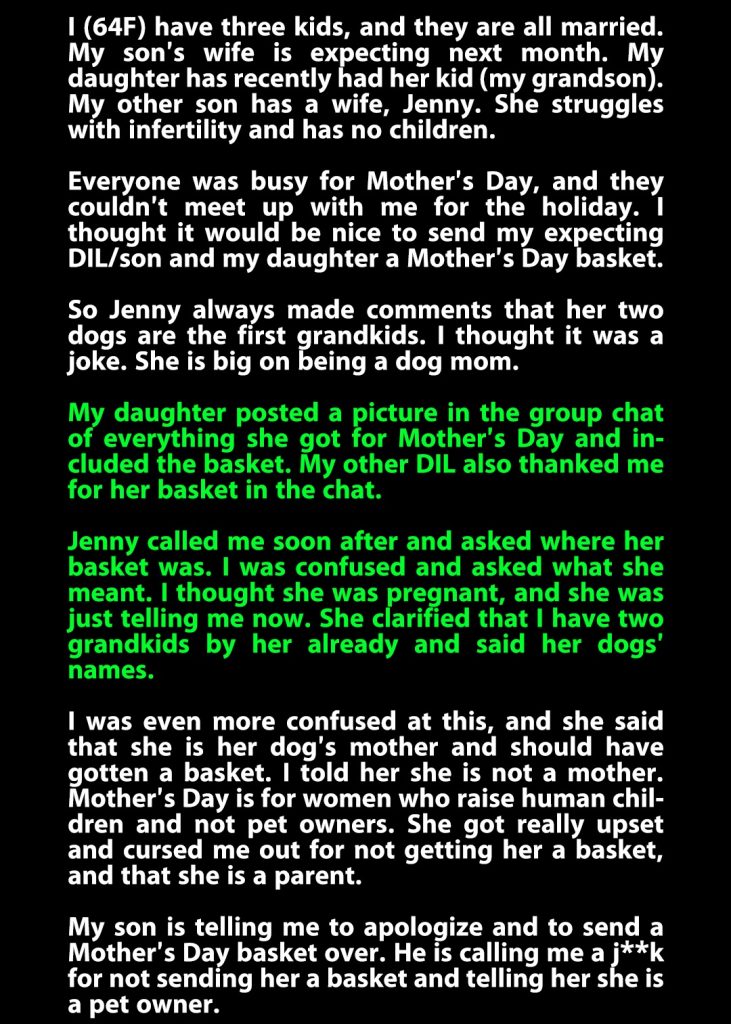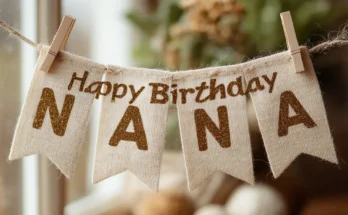She didn’t mean to be cruel. She simply followed tradition.
A mother in her 60s, proud of her growing family, prepared thoughtful Mother’s Day baskets for her daughter and her pregnant daughter-in-law—both expecting or raising children. But she left out her other daughter-in-law, Jenny, who had no children of her own. Jenny, however, considered herself a “dog mom,” often joking that her pets were her “first grandkids.” The mother had always smiled politely at those comments, never imagining Jenny saw them as serious claims to motherhood.
When Jenny saw the gifts shared in the family group chat, she called, hurt and angry. “Where’s my basket?” she asked. The mother, confused, asked if Jenny was pregnant. Jenny clarified—she meant her dogs. She expected recognition as a mother because of them.
The mother hesitated, then said what she believed: “Mother’s Day is for women raising human children. You’re a pet owner, not a mom.” Jenny exploded, accusing her of cruelty and exclusion. Her son demanded an apology. The internet was divided—some saw the mother as insensitive, others felt Jenny was overreaching.
But beneath the surface was something deeper: Jenny’s quiet struggle with infertility. Her longing to be seen. Her pain masked by humor. And the mother, though firm in her beliefs, began to wonder—had she missed a chance to show compassion?
She didn’t send a basket. But she did send a message: “I’m sorry if I made you feel unseen. You matter to this family. Always.”
It wasn’t perfect. But it was a start.



